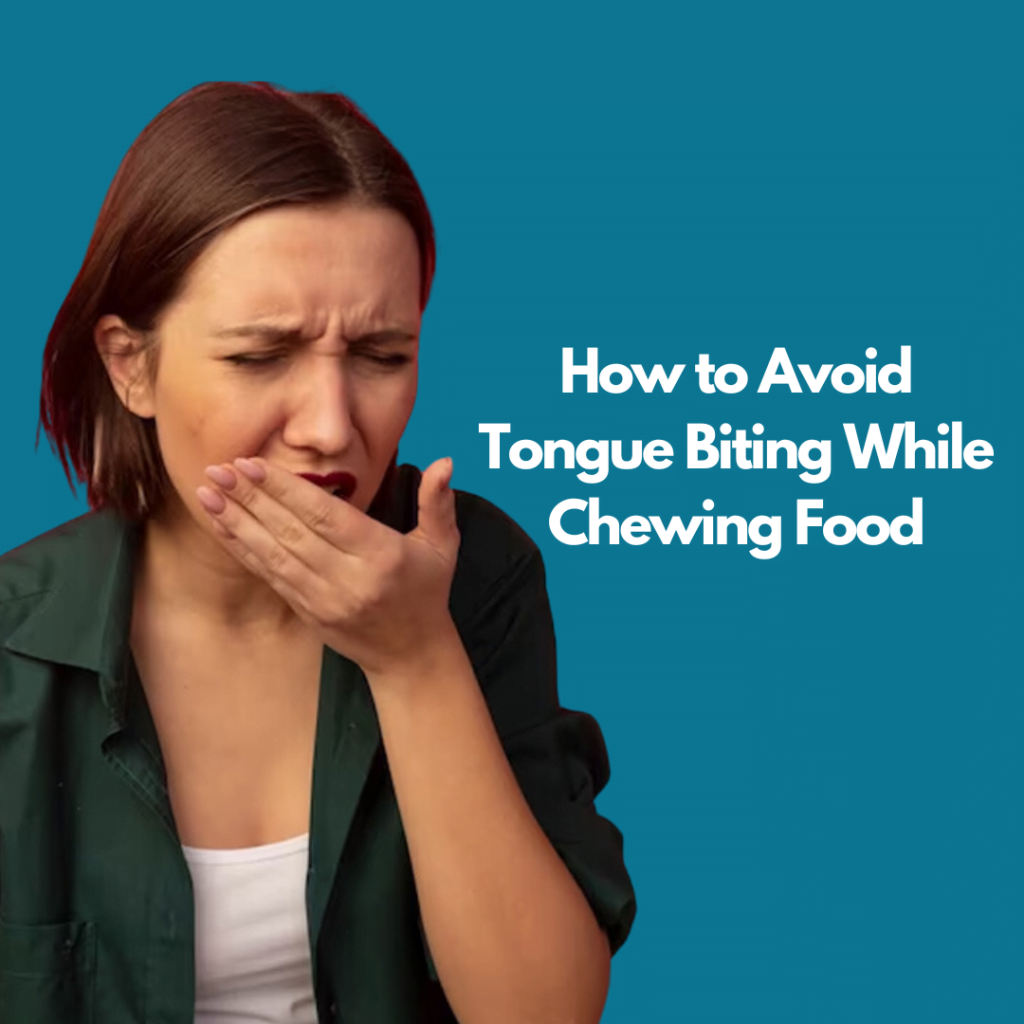How to Avoid Tongue Biting While Chewing Food
How to Avoid Tongue Biting While Chewing Food

Biting your tongue accidentally while eating can be painful and frustrating. Here are some strategies to help you avoid this common issue:
Mindful Chewing
Pay Attention: Being present and focused during meals is a key aspect of mindful chewing. When you are fully attentive to the experience of eating, you are more likely to slow down, savor your food, and be aware of your body’s hunger and fullness cues. Mindfulness involves bringing your attention to the present moment with openness, curiosity and acceptance. When applied to eating, this means letting go of distractions like TV, phones or work, and directing your senses to the sight, smell, taste and texture of your food.
Avoid Rushing: Rushing through meals is a common habit that can undermine the benefits of mindful chewing. When you eat too fast, you are more likely to take large bites, chew insufficiently, and potentially injure your mouth by biting your tongue or the inside of your cheek.Slowing down and chewing each bite thoroughly has several advantages such as minimised risk of choking and accidently biting your tongue or cheek.
Dental Considerations
Check Your Teeth: Misaligned teeth or dental issues can contribute to tongue biting. Visit a dentist to address any problems.
Dentures: If you wear dentures, ensure they fit properly. Ill-fitting dentures can lead to accidental tongue bites.
Choose Softer Foods
- Texture Matters: Opt for softer foods that are easier to chew. Hard or tough foods increase the risk of tongue injuries.
- Cool or Warm Foods: Extremely hot or cold foods can catch you off guard. Properly cool or warm your meals before eating.
Avoid Distractions
- Focus on Eating: Avoid multitasking while you eat. Distractions can lead to hasty chewing and accidental bites.
- Put Down Devices: Don’t browse your phone or watch TV while eating. Give your meal your full attention.
Be Gentle with Chewing Gum
Choose Soft Gum:
If you choose to chew gum, it’s best to opt for softer varieties. Aggressive or vigorous chewing can lead to injuries to the tongue, such as cuts, abrasions, or even bruising. Softer gum formulations are less likely to cause these types of issues.
Mindful Gum Chewing:
When chewing gum, it’s important to be aware of your habits and avoid biting down too forcefully. Excessive or aggressive chewing can put unnecessary strain on the jaw muscles and teeth, potentially leading to discomfort or even more serious dental problems over time. Practicing mindful, gentle chewing can help you avoid these issues.
Cold Compress for Relief
- Immediate Relief: If you accidentally bite your tongue, apply a cold compress to the injured area for a few minutes.
- Ice or Ice Pops: Sucking on ice or fruit-flavored ice pops can soothe tongue discomfort.
Regular Dental Check-ups
- Preventive Care: Regular dental visits for preventative care help maintain oral health. Your dentist can identify any issues that might contribute to tongue biting.
Remember, prevention is key. Pay attention to your eating habits, choose softer foods, and be mindful of your dental health. The harder the food is to chew before swallowing, the more chances there are to accidentally bite your cheek or tongue. So, take it slow, chew mindfully, and enjoy your meals without any tongue-related mishaps!
If you need a preventative care or any dental care, book an appointment with us now:
Frequently Asked Questions
How to avoid tongue biting while eating?
There are a few things you can try to prevent biting your tongue while eating:
- Slow down and focus on chewing: Take smaller bites and chew thoroughly before swallowing. This gives your tongue time to move out of the way.
- Avoid distractions: Put down your phone and turn off the TV while eating. Pay attention to the taste and texture of your food.
- Cut food into manageable pieces: Large chunks of food are more likely to catch your tongue.
- Be mindful of temperature: Extremely hot or cold foods can surprise your mouth, making it harder to control your tongue.
Why do I keep biting the inside of my mouth when eating?
There are a couple of reasons why you might be biting your cheek or tongue while eating:
- Eating too quickly: When you rush through your meal, your tongue and cheeks are more likely to get in the way of your teeth.
- Stress or anxiety: Tense muscles in your face and jaw can make it harder to control your tongue.
- Dental problems: Misaligned teeth or crowns can irritate your tongue and make it more susceptible to bites.
What is tongue chewing a symptom of?
Habitual tongue chewing can be a sign of stress, anxiety, or boredom. It can also be linked to underlying conditions like ADHD or nutritional deficiencies. If you’re concerned about tongue chewing, it’s best to consult with a doctor or dentist.
How do you protect your tongue from being bitten?
The best way to protect your tongue is to focus on mindful eating practices. Slow down, chew thoroughly, and avoid distractions. If you suspect a dental issue might be contributing to the biting, schedule an appointment with your dentist.


